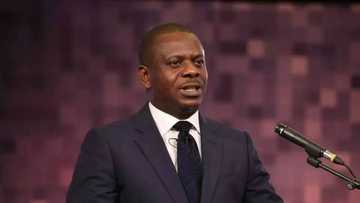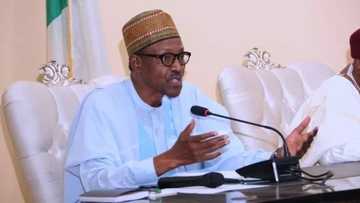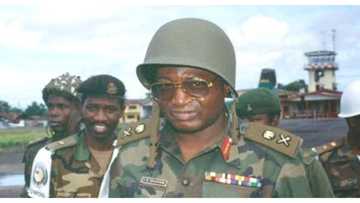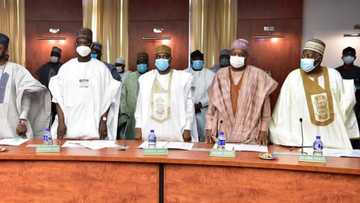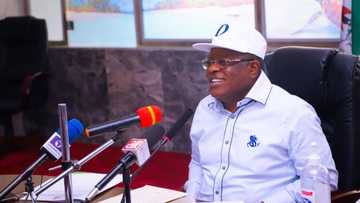Why President Buhari Must Act Now, Resign or Be Impeached by Saheed Akinola
Editor's note: Constitutionally, governments at all levels are expected to protect the lives and property of the citizenry. But where this fundamental role is missing, anarchy may take the centre stage.
In this piece, Legit.ng's contributor, Saheed Akinola esq, a legal practitioner, human rights crusader and writer, writes about the high rate of kidnappings and killings of innocent people in Nigeria, what is expected of President Muhammadu Buhari to do is the insecurity persists in the country.
Saheed gives legal advice on a variety of issues bordering on rights violation and he could be reached via:lagoslawgurus@gmail.com +2348032493960.
PAY ATTENTION: Join Legit.ng Telegram channel! Never miss important updates!
The situation in the country is so tense that nobody can pretend as if things are going on well. The country is getting to its elastic limit at which if stressed further may not return to its original state. A good leader shouldn’t just pretend that everything is ok and assume things will fix themselves.
Nigerians were very hopeful when President Buhari presented himself for election in 2015 and people gave him and his party en-block votes to send Jonathan and his party away. This was done with the renewed hope that they would take Nigeria to the promised land if the content of their manifestoes are implemented.
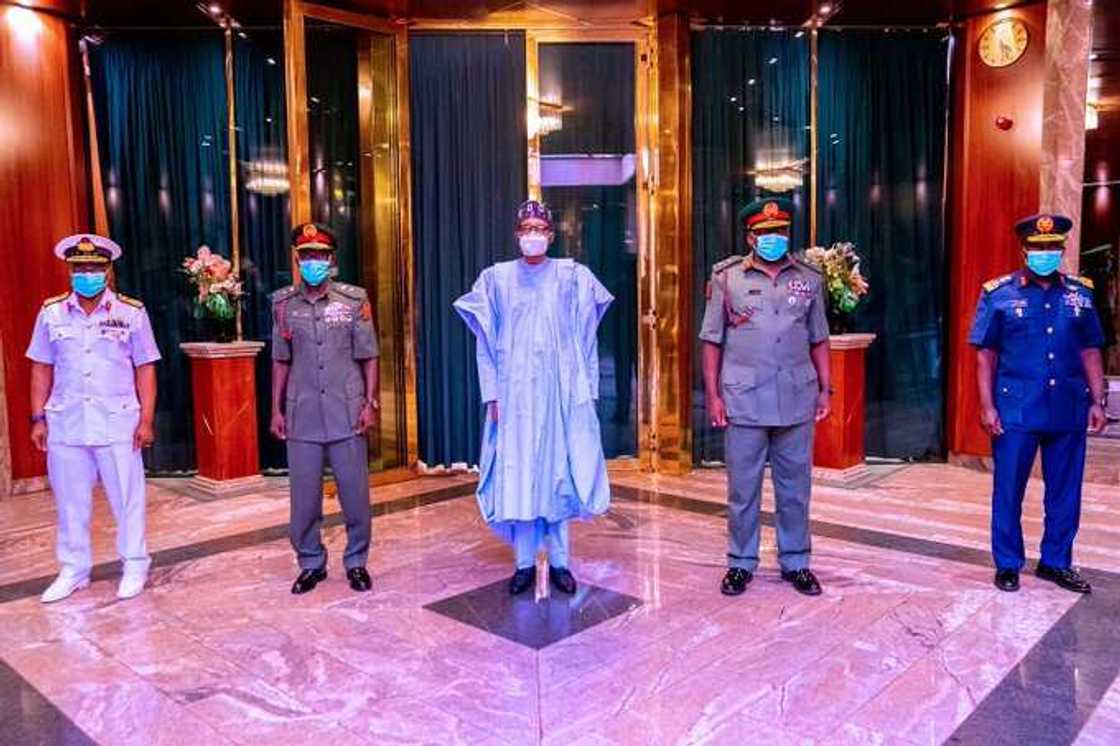
Source: Twitter
Nigerians are tired of excuses and attacked on his predecessors- if after over five years in government the presidency is still using fall in petroleum price as a defence for their lackluster performance, then it portrays the president and his team as visionless leaders.
It shows that there was never a plan on the ground as to modus of achieving the beautiful things they put together in their manifestoes, which they use to hoodwinked the electorates.
With the worsening insecurity and economic quagmire in the country presently, it seems that the president and his team are confused and have no panacea to salvage the situation.
A good leader should listen to the yearning of his people and feel their pains. It seems by the silence of the president in very critical situations as if he does not care about the citizenry.
President Buhari by his disposition to the incidence of killings, kidnapping and banditry, has fanned the ember of tribalism in Nigeria.
The meaning that Nigerians are reading to his silence and inaction is that because the bandits and rustlers are mostly from his tribe that is why little or no action is being taken to address the issue.
A good leader is expected to be decisive in times of crisis and make the right decisions in the face of difficult circumstances. This seems to be lacking in the president.
With the killings that are being carried out on daily basis by Herdsmen in the country and the fact that President Buhari and the security operatives seem helpless, we expect him to resign or buckle up and work or be impeached by the National Assembly.
The people’s sense of judgement should not be beclouded by tribal or religious sentiments. The president begged the citizens when he applied for the job, if the position is too difficult for him to handle then it is honourable for him to resign instead of clinging on to power and watch the country disintegrating.
The Buhari-led government had incapacitated the country and had failed to address the increasing wave of insecurity and downturn of the economy.
Where there are facts that the president, by his disposition seems to be incapable of discharging his duty as a president, as could be seen in the incidence of banditry kidnapping and Boko Haram in the country which means that the security of the citizens can not be guaranteed, and the country is in a state of economic quagmire, the honourable thing for such a president is to resign.
However where such a leader fails to resign without any wherewithal to remedy the situation, then the legislative arm of government can save the country by invoking the provision of section 143 of the 1999 constitution in relation to the removal of the president from office.
Steps to remove the President from office in line with the provision of section 143 are as follows:
According to Section 143 of the 1999 constitution of the federal republic of Nigeria (as amended), here are the steps to impeach the President:
Step 1
There must be a notice of any allegation in writing alleging gross misconduct on the part of the President. This notice must be signed by not less than one-third of the members of the National Assembly (both the Senate and House of Representatives) and it is presented to the Senate President.
Gross misconduct is defined by the constitution as ‘a grave violation or breach of the provisions of this Constitution or a misconduct of such nature as amounts in the opinion of the National Assembly to gross misconduct.
Step 2
The Senate president must within seven days, serve the president and each member of the National Assembly with a copy of the notice of allegation.
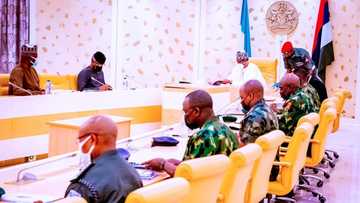
Read also
Opinion: What Osinbajo's presence at recent security meetings mean to Nigerians by Abimbola Oyarinu
Step 3
The President has a right of reply (he/she does not have to reply, however), and any such statement in reply to the allegation must be served on each member of the National Assembly.
Step 4
Within 14 days of the presentation of the notice to the Senate President, each chamber of the National Assembly shall resolve by motion without any debate whether or not the allegation shall be investigated. This motion needs to be passed by at least two-thirds majority of all members of each chamber of the National Assembly.
Step 5
If the motion fails to reach the two-thirds majority, the process immediately stops, and no further action will be taken. However, if the two-thirds majority is obtained and the motion is passed, then the Senate president will within 7 days of the passing of the motion, request the Chief Justice of Nigeria to appoint a panel of seven persons who in his opinion are of unquestionable integrity to investigate the allegations. The members of the Panel cannot be members of any public service, legislative house or political party.
Step 6
The president whose conduct is being investigated under this section shall have the right to defend himself in person and be represented before the Panel by legal practitioners of his own choice.
Step 7
A panel shall be appointed which shall:
"(a) Have such powers and exercise its functions in accordance with such procedure as may be prescribed by the National Assembly; and (b) Within three months of its appointment report its findings to each House of the National Assembly."
Step 8
Where the Panel reports that the allegation has not been proven, there will be no further action. However, if the report is that the allegation against the President has been proven, then the National Assembly will consider the report, and a resolution for the adoption of the report shall be moved.
Step 9
For the resolution to be adopted, it must be supported by not less than two-thirds majority of all the members of each House. Once adopted, the President shall stand removed from office as from the date of the adoption of the report.
PAY ATTENTION: Install our latest app for Android, read the best news on Nigeria’s #1 news app
Meanwhile, Legit.ng had previously reported that the ruling All Progressives Congress (APC) hit hard on the spiritual director of Adoration Ministry, Rev. Fr. Ejike Mbaka, over his call for the National Assembly to impeach President Muhammadu Buhari.
It was reported that Yekini Nabena, the APC deputy national publicity secretary, on Friday, April 30, in Abuja, cautioned Mbaka against making statements that could cause instability in the country.
Source: Legit.ng


